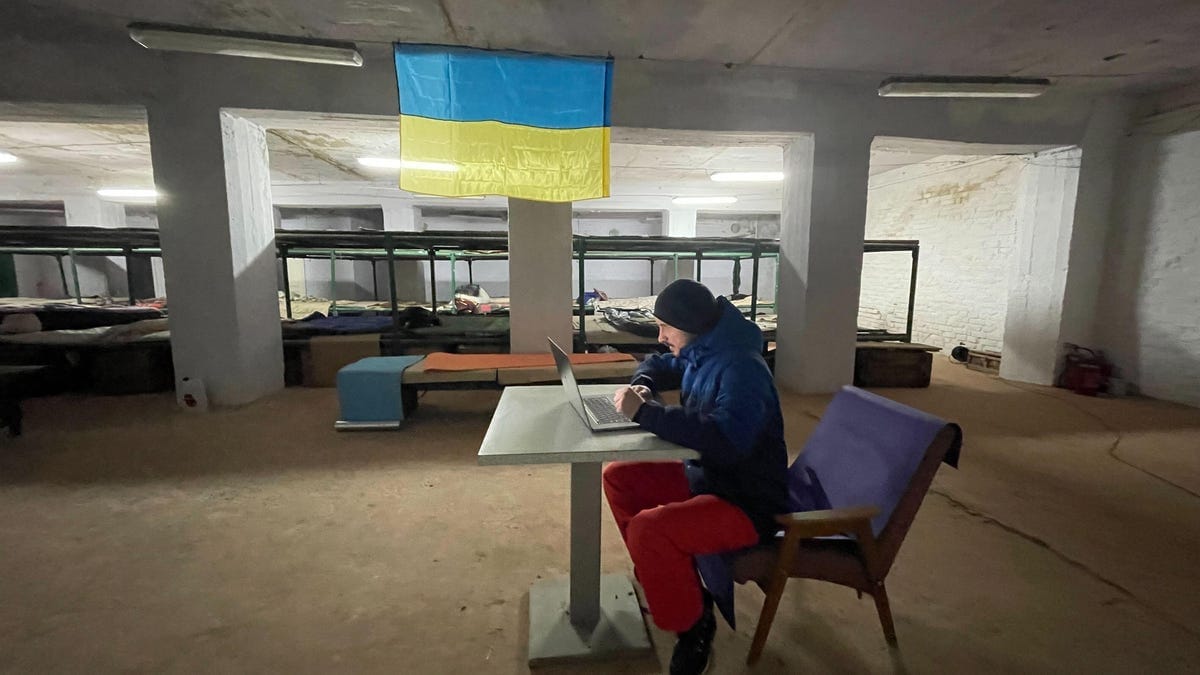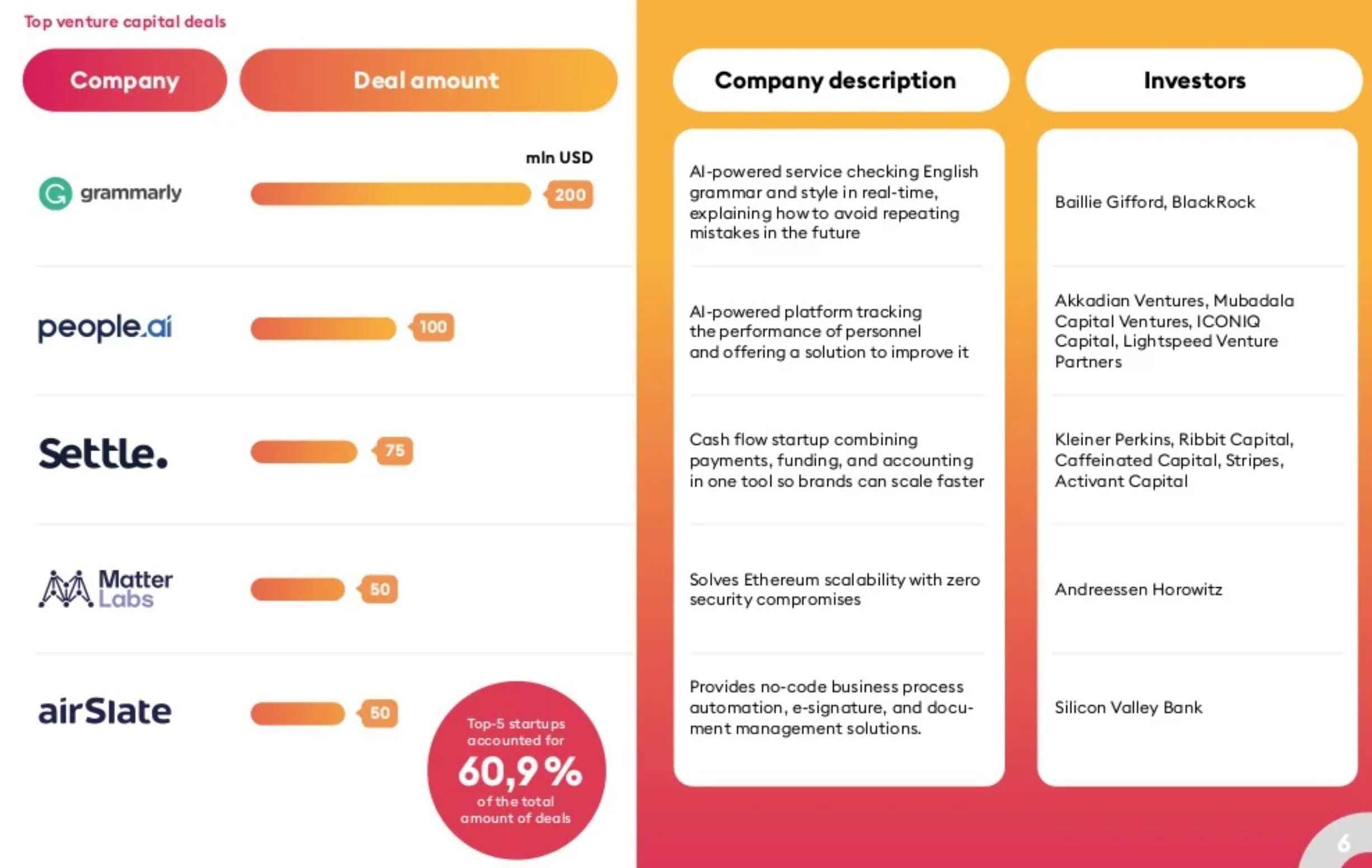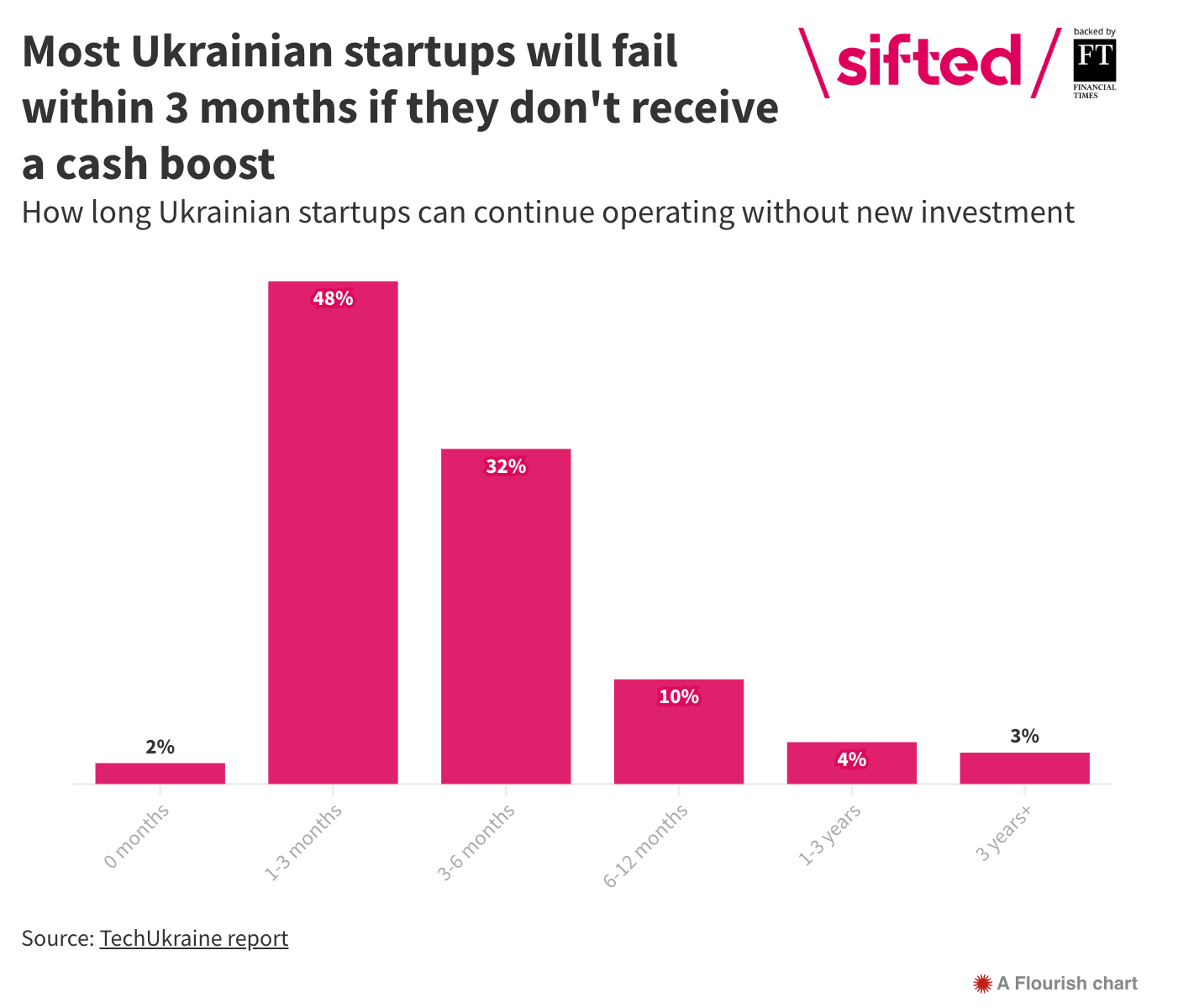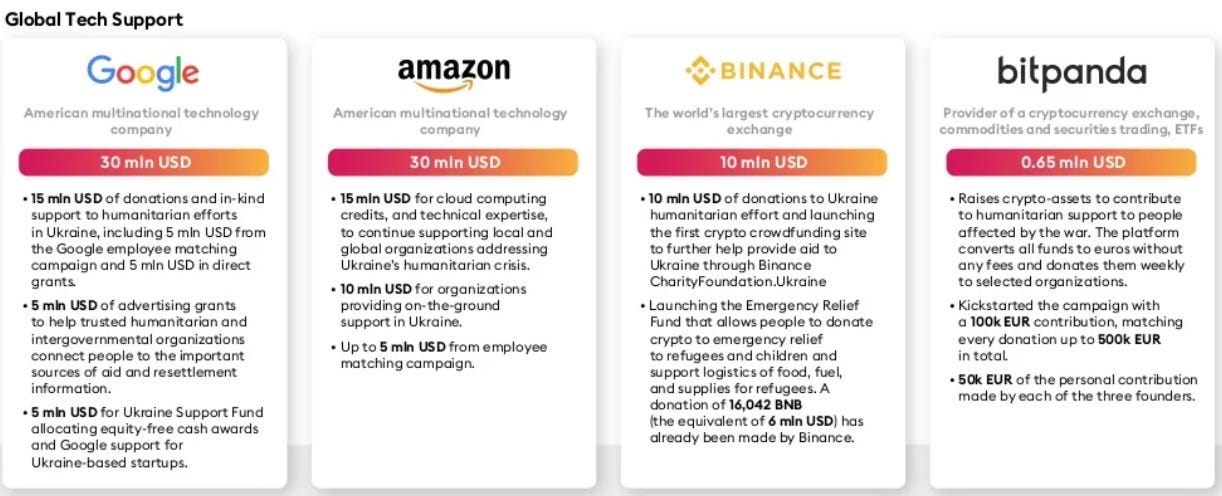How the Ukrainian startup ecosystem is adapting to the war
The Ukrainian tech scene continues to grow and develop despite Russian aggression.

A recent growth spurt
What a decade it has been for Ukraine. In 2014, the Ukrainian people fought to get rid of the country’s pernicious Russian political influence, displacing then-Russian-backed president Viktor Yanukovych during the bloody Maidan Revolution. The same year, Russia annexed Crimea, casting an ominous shadow of Russian aggression for the next couple of years. Until it happened. On February 24th 2022, Russia officially launched its invasion of Ukraine, a callous act that is still being valiantly fought by Ukrainians to this day.
In the past decade or so, Ukraine had been distancing itself from Russian influence, consolidating its democratic gains, and cozying up to the European Union for which it applied. The economy had been growing, investment was increasing, and the country’s startup scene was taking off. Since Volodymir Zelensky’s election in 2019, the country had embarked on an ambitious e-government program, even gaining praise from leaders in the sector such as Estonia. Many city names we associate with destruction and horror today had very different connotations just a couple of months ago.
“In 2019, Mariupol, a city now devastated by shelling, received two smart city awards – ‘Startup City’ and ‘Best City Transport Model’. Kharkiv is known to be the birthplace of Ukraine’s first unicorn, Gitlab, while Odesa is home to well-known startups like Looksery (now owned by Snapchat). Ukraine’s tech scene was thriving thanks to a highly-skilled workforce and a commitment to innovation. The country was also developing itself as a leader in fueling the green energy transition with promising developments and innovation in climate and green tech. With a strong tradition in the energy industry, it was a nation pushing forward developments in renewables, electric vehicles, and the use of hydrogen.” - EU Startups
The Ukrainian startup ecosystem was seemingly reaching a point of relative maturity, stemming from the country’s first big exits and the increasing business acumen among the already technically-skilled workforce. Long a bedrock of IT outsourcing, Ukraine had many talents in stock to continue growing its startup scene, alongside the 250,000 people already working in the industry. The country was also gaining some international exposure, through homegrown successes such as Grammarly, GitLab, and People.ai to name a few. Investors such as a16z, Kleiner Perkins, or Mubadala (the UAE’s sovereign wealth fund) were investing in the country. Its small domestic market made Ukrainian startups “default-global”, which is attractive to VCs.

A bump in the road
Since the beginning of the article, I have been writing in the past tense as if the Ukrainian startup ecosystem had brutally stopped. That’s far from reality. A vast majority of startups have continued to operate despite the war, and Russian forces’ retreat is leading some tech workers to come back to the country after initially fleeing. The country’s tech talent has also been filling up the ranks of the so-called “IT army”, tasked with defending against Russian cyberattacks and propaganda while carrying out attacks of its own.
Tech, whether it be IT outsourcing or startups, is one of the only segments of the Ukrainian economy that has continued to grow, amidst the destruction and human tragedy. Indeed, Ukrainian workers can work from anywhere: bomb shelters, closets, but more importantly, abroad. While most companies retain a presence in Ukraine, significant amounts of female tech workers have relocated, enabling them to contribute to their country's economy and subsequent war effort even from afar. The male population, which makes up a majority of Ukraine’s coder population, has stayed in Ukraine. According to the National Bank of Ukraine, the country’s IT sector has exported $3.74B worth of services in the first half of 2022, a 23% increase from the same period last year. It has helped the state rack up $1B in taxes, essential to funding the resistance.
Ukrainian startup workers have shown incredible resilience during the war, working from wherever they can whenever they can, often volunteering in humanitarian missions during their off-hours. A substantial number of men have also joined the war front, leaving their startup on pause. Startups have struggled with how to keep their data safe, especially if their data centers were located in war-torn areas.
“Internet giant Cloudflare chief executive Matthew Prince said the company had “removed all Cloudflare customer cryptographic material from servers in Ukraine,” hours after the invasion began, as part of an effort to protect customer data and communications in the event that the data center is compromised.” - TechCrunch
While resistant and laudable, Ukrainian startups have severely suffered from the war, with an estimated 48% of them having a runway of only 1-3 months. The current environment makes it hard to raise, leaving the ecosystem reliant on useful but insufficient public initiatives such as the EU’s $20M Ukrainian deep-tech fund. Some of the ecosystem actors have started raising from abroad again, pitching Ukrainian startups as battle-hardened and inherently internationally focused. Indeed, a key component for Ukrainian startups to survive is to find traction and adapt their product to foreign markets, the local market being heavily damaged. As Andrew Zinchuk, founder of ZAS Ventures, told me:
“We have to package all of the stuff we went through this year and turn it into a story for investors. The most important component for an early-stage investor is the startup’s founding team. Two Ukrainian founders who built their MVP together in a bomb shelter have an extremely credible story to tell about resilience, and can convince investors that they know how to handle obstacles.”
Locally, the ecosystem is incessantly trying to keep up the rhythm. The country’s public startup funding apparatus, Ukrainian Startup Fund, has continued working and has developed a matching program to gain support from abroad. Some in-person events have re-opened.

A panacea?
The development of a homegrown, deeply technical, innovation ecosystem is one of the prerequisites for a country to enjoy sustainable freedom on the world stage. Countries such as Estonia, Israel, and South Korea have managed to forge a prominent place and good relationships on the world stage in large part due to their advanced technology and vibrant startup scene. In an ever-globalized VC world, Ukrainian startups attracting large sums of foreign investment can prove to be a boon for Ukraine’s quickly expanding soft power. As the iconic founder of Indian conglomerate Tata puts it:
“Freedom without the strength to support it and, if need be, defend it, would be a cruel delusion. And the strength to defend freedom can itself only come from widespread industrialization and the infusion of modern science and technology into the country’s economic life.” - Jamsetji Tata
The newly formed Ukrainian Ministry of Digital Transformation has seemingly been tasked with spreading the good word about Ukraine’s tech potential worldwide. And it’s working. Headed by a young, charismatic, and vocal leader, Mykhailo Fedorov, big tech around the world has been sympathetic and supportive of the Ukrainian struggle either getting involved directly or by boycotting the Russian market.
The point of this segment is the following: Ukraine’s startup ecosystem is not only one of the least-damaged sectors of the Ukrainian economy, it is also one with great growth potential. Moreover, building a respected and influential tech ecosystem will be crucial to fostering even more global support, investment, and relationships post-war.

Conclusion
In true startup fashion, the Ukrainian tech ecosystem has adapted, evolved, and iterated around a more than complex “black swan event”. The emphasis here should be on the people working in the ecosystem, who have either joined the army, continued working in extremely precarious conditions, or been contributing to the country’s economy from abroad. Ukrainian startups have been imbued with a new, quasi-spiritual quest: winning is more than just a personal success, it’s a matter of principle and defiance. As Elena Malitskaya, CEO and founder of ISE Corporate Accelerator, eloquently puts it:
It is easy to destroy buildings, but Ukrainian digital products, intellectual capabilities, abilities, and entrepreneurial spirit won’t be destroyed. And this is the spirit of winners. This is the spirit of freedom and the future. - Ukrainian Venture Capital and Private Equity Association
It will be important for Ukrainian startups to raise more and more from abroad. The local VC market is still embryonic, with many VCs being family offices or corporates whose main focus isn’t startup investing. However, when raising from VCs abroad, Ukrainian startups should approach them with a business opportunity, not a demand for help. Ukrainian startups have many attributes a VC values: resilience, international focus, solid tech talent… The goal will be to convince the first couple of investors, and launch the flywheel.
In the end, it seems Russia has managed to encroach on every Ukrainian freedom except the most important one: freedom of thought.
The Realistic Optimist is a weekly publication making sense of the globalized startup scene.





